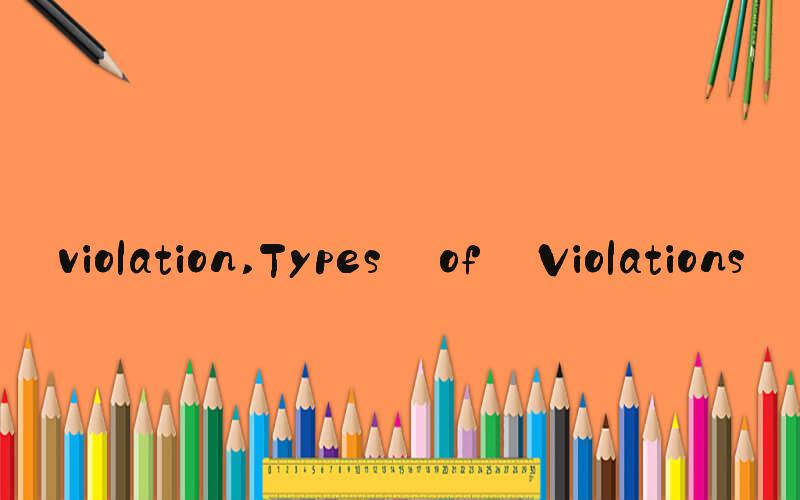
Introduction
Violation is an act that goes against the established laws, rules, or social norms that guide human behavior. It is an action that is deemed inappropriate as it causes harm or disruption to the natural order of things. Violations can be committed by individuals, groups, organizations, or governments. They can have varying levels of severity from minor misdemeanors to major crimes.
Types of Violations
Violations can be divided into several categories according to the nature of the offense. These categories include criminal violations, civil violations, regulatory violations, and ethical violations. Criminal violations refer to offenses that are considered serious crimes, such as murder, theft, or assault. Civil violations, on the other hand, involve a breach of contract or a violation of another person's rights. Regulatory violations refer to a violation of established rules or regulations, such as a traffic violation. Ethical violations are actions that violate a code of ethics or moral principles.
Causes of Violations
The causes of violations are complex and multifaceted. They can arise from personal, social, or political factors. Personal factors that can lead to violations include mental illness, low levels of education, or a lack of self-control. Social factors, such as poverty, discrimination, or peer pressure, can also contribute to violations. Political factors, such as corruption, authoritarianism, or lack of accountability, can create an environment where violations are more likely to occur.
Consequences of Violations
Violations can have serious consequences for individuals, communities, and society as a whole. Depending on the severity of the offense, consequences can range from fines and penalties to imprisonment or even the death penalty. Violations can also cause harm to innocent parties in the form of physical or emotional trauma, loss of property or income, or damage to the environment. Violations can also erode trust in institutions and lead to a breakdown of social order.
Preventing Violations
Preventing violations is a complex and ongoing process that involves multiple stakeholders. It requires a combination of education, awareness-raising, enforcement, and support. Education and awareness-raising can help individuals understand the consequences of their actions and the importance of following established rules and norms. Enforcement can act as a deterrent and ensure that violators are held accountable for their actions. Providing support to individuals who are vulnerable to committing violations, such as those with mental illness or a history of trauma, can help prevent future offenses.
Conclusion
Violations are a part of human society, but they can be prevented and minimized through a combination of education, awareness-raising, enforcement, and support. Understanding the causes and consequences of violations is essential in creating a society that is equitable, just, and respectful of human rights and dignity.

